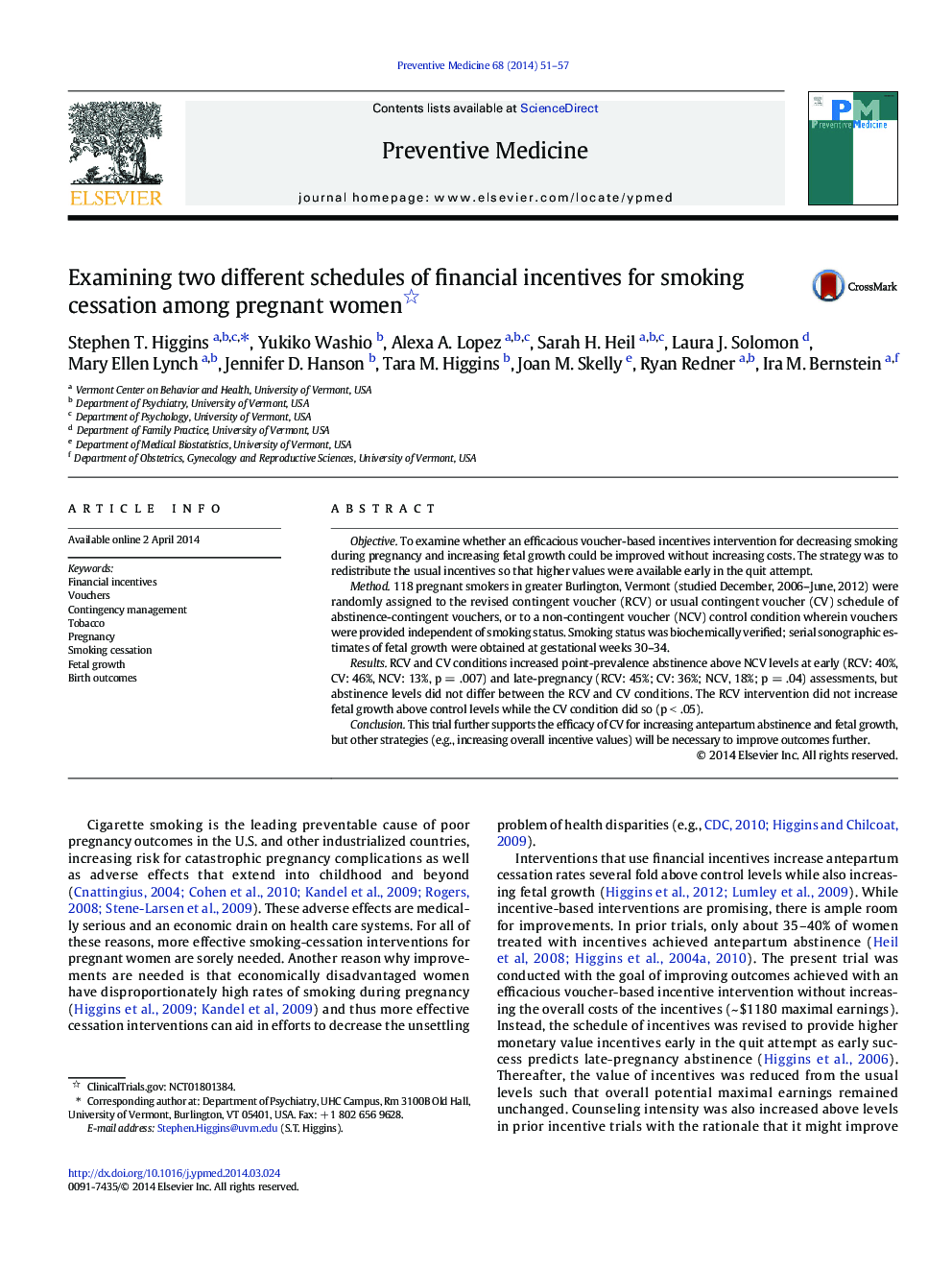| Article ID | Journal | Published Year | Pages | File Type |
|---|---|---|---|---|
| 3100470 | Preventive Medicine | 2014 | 7 Pages |
•Financial incentives are effective in helping pregnant women to abstain from smoking.•Scheduling incentives to improve efficacy without increasing cost was unsuccessful.•Financial incentives also improved fetal growth.•Helping pregnant smokers to quit in this manner may help reduce health disparities.
ObjectiveTo examine whether an efficacious voucher-based incentives intervention for decreasing smoking during pregnancy and increasing fetal growth could be improved without increasing costs. The strategy was to redistribute the usual incentives so that higher values were available early in the quit attempt.Method118 pregnant smokers in greater Burlington, Vermont (studied December, 2006–June, 2012) were randomly assigned to the revised contingent voucher (RCV) or usual contingent voucher (CV) schedule of abstinence-contingent vouchers, or to a non-contingent voucher (NCV) control condition wherein vouchers were provided independent of smoking status. Smoking status was biochemically verified; serial sonographic estimates of fetal growth were obtained at gestational weeks 30–34.ResultsRCV and CV conditions increased point-prevalence abstinence above NCV levels at early (RCV: 40%, CV: 46%, NCV: 13%, p = .007) and late-pregnancy (RCV: 45%; CV: 36%; NCV, 18%; p = .04) assessments, but abstinence levels did not differ between the RCV and CV conditions. The RCV intervention did not increase fetal growth above control levels while the CV condition did so (p < .05).ConclusionThis trial further supports the efficacy of CV for increasing antepartum abstinence and fetal growth, but other strategies (e.g., increasing overall incentive values) will be necessary to improve outcomes further.
